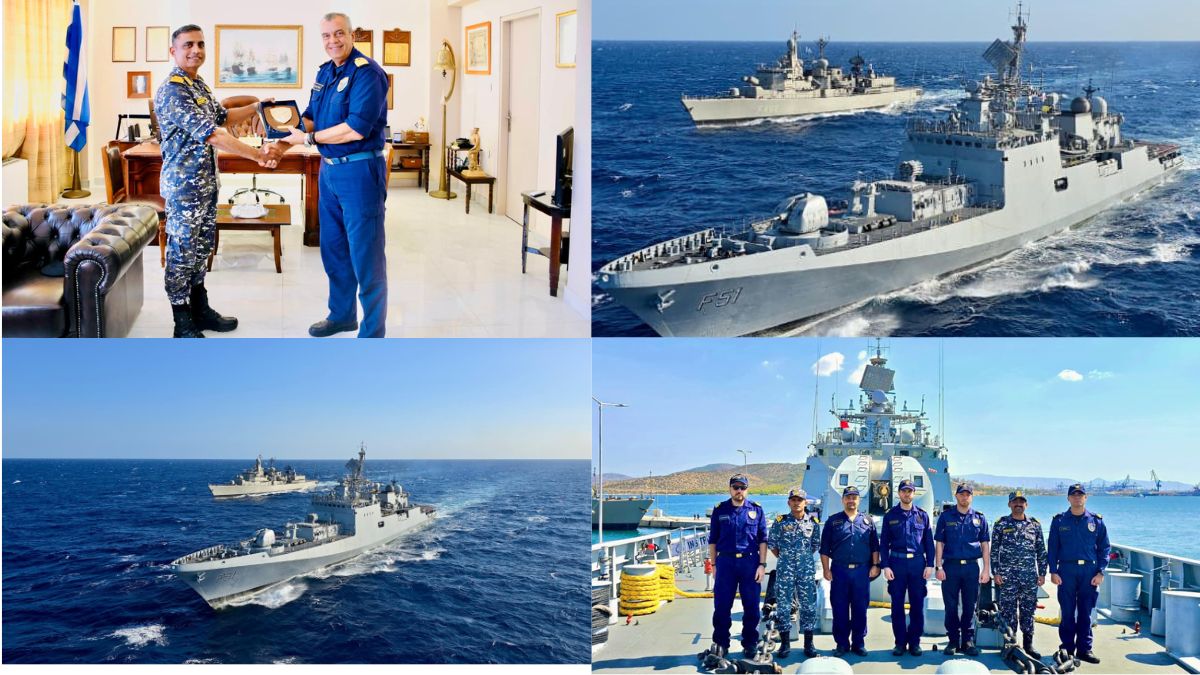India and Greece have completed their maiden bilateral maritime exercise, a two-phase drill that brought together guided missile frigates, submarines, helicopters and crews from both navies.
Conducted between September 13 &18 around the Salamis Naval Base and at sea, the exercise is being described as a step forward in the growing defence cooperation between the two countries.
The exercise comes as both nations deepen their naval ties against the backdrop of wider strategic engagement in the Indo-Pacific and Mediterranean. It reflects a convergence on issues such as maritime security, freedom of navigation and cooperative deployments in shared sea lanes.
What did the exercise involve?
The Indian Navy’s INS Trikand joined Greece’s frigate HS Themistokles and submarine Pipinos, along with a Greek naval helicopter, for the drill. The harbour phase included cross-deck visits, professional exchanges and a pre-sail conference on board the Greek frigate.
A cultural evening on INS Trikand hosted Indian and Hellenic officials, including India’s ambassador to Greece and senior naval officers, while the crew also visited the Acropolis in Athens.
The sea phase on September 17–18 featured complex tactical manoeuvres: night visit–board–search–and–seizure operations, replenishment-at-sea, anti-submarine warfare drills, joint gun firing and helicopter cross-deck operations.
Officials said these activities validated the operational skills of both navies and improved interoperability in high-pressure scenarios.
Why is this exercise significant?
The successful conduct of the drill reflects growing alignment between New Delhi and Athens on maritime security. Both nations see cooperation at sea as central to addressing shared challenges in global shipping routes.
For India, the exercise enhances naval visibility in the Mediterranean as part of its wider deployments, while for Greece it signals willingness to collaborate with Indo-Pacific partners.
The partnership also comes against the backdrop of stronger political ties. On Friday (September 19), Greek Prime Minister Kyriakos Mitsotakis called Indian Prime Minister Narendra Modi to support the early conclusion of the India–EU Free Trade Agreement and to extend greetings on Modi’s birthday. The two leaders reaffirmed commitment to advancing bilateral and regional cooperation.
